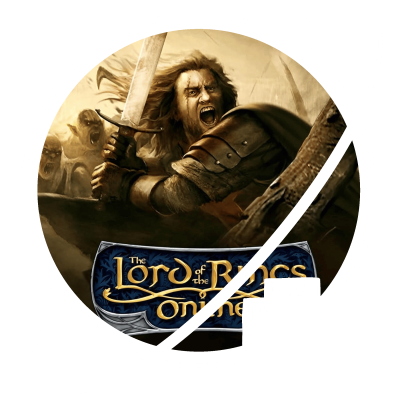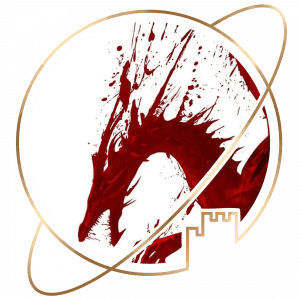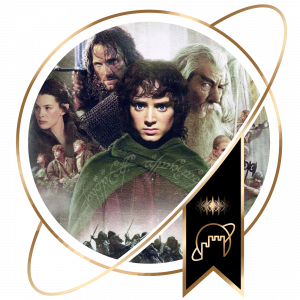- Video game developed by Standing Stone Games
- Published by Daybreak Game Company
- Released in April 24, 2007
- Massively multiplayer online role-playing game
- Platforms: Microsoft Windows, OS X
- Playing time: hundreds of hours. And they still release expansions!

Hearken to me! Too long have you sat in the shadows. After seventeen years, I feel it’s my duty to release you from this spell.
Yes, I was there, dear reader, I was there some seventeen years ago, just a wee little bairn skipping through her life and being entirely obsessed with The Lord of the Rings. When they first announced there would come an online role-playing game set in Tolkien’s Middle-Earth, it was never a question of whether I would buy it, but rather if my internet connection and PC would be strong enough to handle playing it. During the free early release, I quickly discovered my technical set-up was less than ideal. It took my character 10 long and laggy minutes to move from one NPC quest giver to another in the same street. But did this deter me? Not in the slightest. Because despite my aberrant gaming experience, I had seen this game’s glorious potential and had become enthralled. As such, after the early release had ended, I immediately took my saved money to buy the then available lifetime subscription for some 100 dollars. Now, seventeen(!) years later, it’s an investment I’m still very grateful for.
Not many people know this, but Lord of the Rings Online (or ‘LOTRO’ as the cool kids call it) might in many ways very well be the best adaptation of Tolkien’s writings. A bold statement, I know. Still, when it comes to faithfulness to its source material, this game does unequaled work. This pertains not only to the depictions of canon events and characters, but also to all the lore and worldbuilding the game developers add to it. They seem to know exactly how to stay true to the themes Tolkien found so important, as well as his dedication to details and specific sense of humour. Did Tolkien write about what the Dúnedain of the North were up to before they travelled south as the Grey Company? No, but it makes sense they fought their own battles against the forces of evil. Similarly, it makes sense that after the war, people would have to struggle with how to deal with the Easterlings, Haradrim and corsairs from Umbar who had no ways to return home.
Although I only play LOTRO casually (sometimes ignoring it for months) I’m always excited to return and see how the game developers give a voice to lands and characters that Tolkien only mentioned in passing, if at all. In the same line, I absolutely love how this game has grown. Not only in size – at first, you could only travel from Ered-Luin to the Misty Mountains, and from the Lone Lands to Angmar, while now continents as Rhovanion, Gondor and recently the lands of Umbar are also available – but also in spirit. I still feel immense glee everytime I encounter a black Gondorian, lesbian dwarf warriors or anything else that proves that diversity fits in Tolkiens world as much as the real world.
LOTRO delivers, I think, what most Tolkien fans secretly want: a way to explore his rich and beautiful world without limitations, as a character of their own making. A clever design choice is the fact that the story of the well-known characters such as Frodo, Aragorn and Gandalf often plays only in the background. Though you as a player might know what is happening, your character doesn’t and mostly has their own battles to fight. You don’t play second fiddle in that regard. Also, this decision allows for more creative storytelling with stakes that feel real, because you know the canon characters won’t suddenly steal your thunder. And believe me, the writing in this game is extremely good, not only the epic quests, but also the silly little adventures one might find in the Shire. Additionaly, some storylines still haunt me to this day, with emotional impact and plottwists that I wish would reach a greater public than is the case now.
So, does me giving this game five stars mean that it’s perfect. Well, no. Like I said, it’s already seventeen years old. The graphics can’t compare with modern day games, though I’ll argue that LOTRO can still be a very beautiful game in its own right. There are still times I halt ingame to take a look at the stunning landscapes, at least.
Another thing not everyone might like: this game is a MMORPG. This comes with clunky game mechanics I’m not always particilarly fond of, some elements of grinding, paywalls and people that say things in the world chat that you don’t think Samwise Gamgee would approve of. It’s possible to play most of this game solo, such as the main story, but there is also content that you can only complete in a group. For others, this might not be an issue, though.
If my essay did not fully convince you, I’ll urge you to still give Lord of the Rings Online a try. Its main storyline is free nowadays, so you only lose time if the experience is dissapointing. One last advice from me? If you happen to have a friend that might join you in adventuring in Middle-Earth, do invite them. When I started playing LOTRO as a child, I loved questing with my primary school friends. Though we’ve lost touch with eachother long ago, I still fondly harbour those memories to this day.









